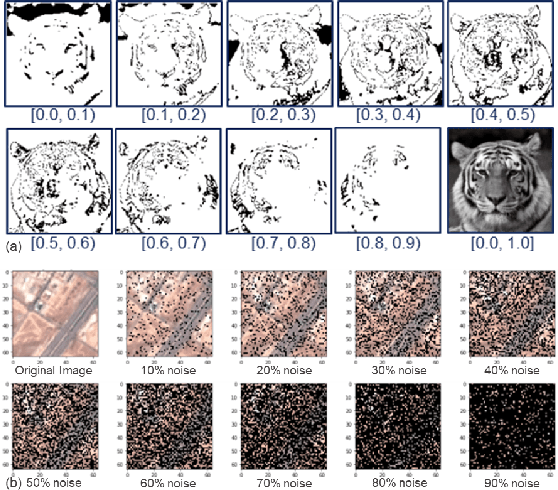Streaming Networks: Increase Noise Robustness and Filter Diversity via Hard-wired and Input-induced Sparsity
Paper and Code
Apr 09, 2020



The CNNs have achieved a state-of-the-art performance in many applications. Recent studies illustrate that CNN's recognition accuracy drops drastically if images are noise corrupted. We focus on the problem of robust recognition accuracy of noise-corrupted images. We introduce a novel network architecture called Streaming Networks. Each stream is taking a certain intensity slice of the original image as an input, and stream parameters are trained independently. We use network capacity, hard-wired and input-induced sparsity as the dimensions for experiments. The results indicate that only the presence of both hard-wired and input-induces sparsity enables robust noisy image recognition. Streaming Nets is the only architecture which has both types of sparsity and exhibits higher robustness to noise. Finally, to illustrate increase in filter diversity we illustrate that a distribution of filter weights of the first conv layer gradually approaches uniform distribution as the degree of hard-wired and domain-induced sparsity and capacities increases.
 Add to Chrome
Add to Chrome Add to Firefox
Add to Firefox Add to Edge
Add to Edge